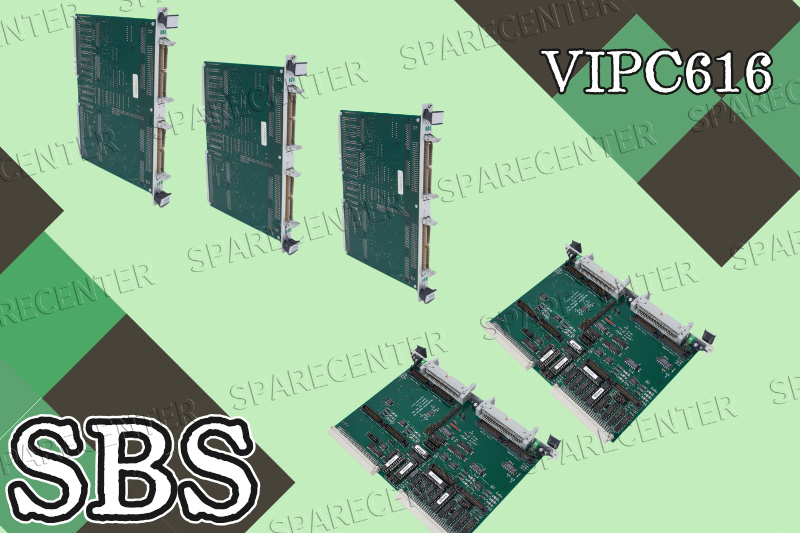Introduction
In the demanding arena of high-performance computing and embedded systems, the VMEbus (VersaModule Eurocard bus) has long stood as a highly robust and reliable architecture. It's particularly favored in critical sectors such as industrial automation, defense, telecommunications, and scientific research. Its enduring appeal stems from its inherent modularity, high bandwidth, and proven reliability. Complementing this powerful bus are carrier boards that facilitate the integration of specialized I/O PMC modules, significantly expanding a system's capabilities. Among these, the SBS VIPC616 Carrier VME Board has become a cornerstone component, offering a flexible and efficient solution for integrating a wide array of functionality onto the VME Board platform. This article explores the core features, operational advantages, and diverse applications of the SBS VIPC616 Carrier VME Board, highlighting its critical role in extending the reach and utility of VME-based systems to achieve truly high performance. The Architectural Advantage: Understanding the SBS VIPC616's Design The SBS VIPC616 Carrier VME Board is meticulously engineered to bridge the gap between the robust VMEbus backplane and the versatile PMC Module (PCI Mezzanine Card) standard. This design choice is fundamental to its utility in embedded systems. At its heart, the VIPC616 functions as a full-featured VME Board master and slave, providing two PMC Module sites. This allows system integrators to incorporate a broad range of I/O, processing, or communication functions directly onto the VME architecture, fostering immense modularity. Key to its operation is a high performance PCI-to-VME bridge controller. This bridge facilitates seamless and efficient data transfer between the VMEbus and the local PCI bus on the carrier board, to which the PMC Modules are connected. This architecture ensures that the PMC Modules can operate at their optimal PCI bus speeds, leveraging the inherent high bandwidth of the VMEbus for system-level communication, critical for high performance embedded systems. The two PMC Module sites are a significant feature, embodying the board's modularity. PMC Modules adhere to an industry standard that defines electrical and mechanical specifications for mezzanine cards. This open standard allows for a vast ecosystem of third-party PMC Modules, ranging from high performance Analog-to-Digital Converters (ADCs), Digital-to-Analog Converters (DACs), FPGA-based processing units, network interfaces (Ethernet, Fibre Channel), serial communication controllers, to specialized data acquisition modules. By supporting two such slots, the SBS VIPC616 Carrier VME Board effectively doubles the direct I/O expansion capability on a single VME Board slot, conserving valuable backplane real estate and increasing system efficiency. |
The flexibility and power offered by the SBS VIPC616 Carrier VME Board translate into a wide array of applications across various sectors, highlighting its high performance capabilities:
Industrial Automation and Process Control: In factories and critical infrastructure, the VIPC616 is used to integrate specialized I/O for real-time control. For instance, PMC Modules for high performance data acquisition from sensors, precise motor control, or fieldbus communication (e.g., Profibus, DeviceNet) can be seamlessly added to a VME Board-based control system, enhancing responsiveness and data fidelity. Its inherent reliability in rugged conditions is a major asset here for industrial automation.
Defense and Aerospace: These sectors demand extreme reliability, unparalleled modularity, and long-term support. The SBS VIPC616 allows for the integration of custom signal processing, secure communication interfaces, or specialized sensor interfaces (e.g., radar, sonar) via PMC Modules into mission-critical VME systems. Its robust design, as a dedicated VME Board, is well-suited for deployment in harsh operational environments found in avionics and ground support systems, ensuring high performance under duress.
Telecommunications: In telecom infrastructure, VME systems often handle high volumes of data. The VIPC616 can host PMC Modules for high performance network interfaces (e.g., OC-3, OC-12), specialized packet processing, or data compression/decompression, helping to manage network traffic efficiently and reliably.
Scientific Research and Test & Measurement: Laboratories and research facilities often require highly specialized data acquisition and processing capabilities. The SBS VIPC616 Carrier VME Board can integrate high performance ADCs/DACs, custom FPGA accelerators for signal processing, or multi-channel digital I/O for experiments, providing the necessary flexibility and high performance for complex scientific endeavors. Its ability to support varied PMC Modules makes it highly adaptable to evolving research needs in embedded systems.
Conclusion
PMC Module PMC Module PMC Module PMC Module PMC Module SBS VIPC616 SBS VIPC616 SBS VIPC616 SBS VIPC616 SBS VIPC616 VME Board VME Board VME Board VME Board VME Board VME Board VME Board VME Board VME Board Reliability Reliability Reliability Reliability Reliability Reliability Reliability Reliability Reliability Reliability Reliability Reliability Reliability Reliability Reliability Reliability PMC Module SBS VIPC616
If you want to more details,please contact me without hesitate.Email:sales@sparecenter.com



